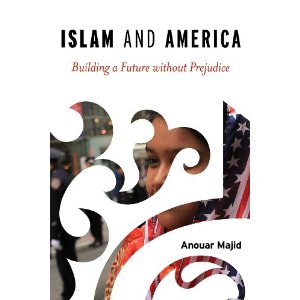Anouar Majid writes in a guest column for Informed Comment
The 2012 Olympics in London gave us a golden opportunity to assess the condition of the Arab world in its natural state. Sports is one occasion when political slogans and self-deception are useless. One either wins or loses.
The performance of Arabs reflects the dismal condition of the Arab world, as documented last decade in several Arab-authored United Nations reports. The Arab world is comprised of 22 nations, with a combined population of approximately 350 million. That’s more than the population of the United States. Yet all these nations together were not able to get more than 12 medals, mostly bronze ones (8). Only three medals were silver and one gold. One.
Small countries like Kazakhstan, Cuba, New Zealand and Jamaica did better than all the Arab nations combined. Even Iran, a nation often maligned by Sunni Arabs, did better, with 4 gold medals out of a total of 12.
How do we explain such a performance? The Arabs are as eager as anybody to see their athletes win. When they do, they wave huge flags and cheer loudly. Their weak performance, therefore, is not due to lack of interest or to defective genes. It reflects the condition of the Arab world as a whole. Arab authoritarianism went in the direction of selfish cliques and family cartels, depriving ordinary citizens of public resources such as facilities for athletic training– in contrast to Chinese authoritarianism, which still has at least some populist elements. Still, I don’t think that politics explains everything. Religion plays a role, too.
One of the issues that consumed a lot of time during the Olympics was whether the athletes should fast or not. Because the games coincided with the holy month of Ramadan, when able-bodied Muslims are required to fast from dawn to sunset, fatwas authorizing the Olympians to break the fast were issued, although not all players chose to abide by them. This dilemma exemplified the powerful place that Islam holds in the lives of many Arabs (especially those of Egyptian, Jordanian and a few other nationalities), though had the Olympics been held in Lent or on Yom Kippur similar dilemmas might have arisen for adherents of other religions.
The real problem is not personal piety but the magical thinking of the fundamentalist project. Muslim fundamentalists of various denominations are all promising reform if Islam were to be implemented correctly, yet no one has outlined a project of society or issued a document that inspires and motivates to build and innovate. There is a rush to write new constitutions, but such documents are long and legalistic; they don’t have the power of a Thomas Paine pamphlet, a Declaration of Independence, or even the leadership of a Steve Jobs. Piety alone is supposed to cure all ills and fix centuries of delays in development.
There is a general correlation between high per capita income and a nation’s Olympic performance, but those countries with high standards of living in the Arab world often come by it artificially, through hydrocarbons, the profits of which are hardly evenly distributed. Oil wealth hasn’t done much to change the condition of Arabs, except by making a handful of countries and princes supremely wealthy. Oil-rich nations may build fabulous cities and import many global treasures, including brand name museums and universities, from Europe and the United States, but they produce practically nothing, not even the simplest device used to broadcast their programs on their ubiquitous satellite television networks.
Instead, Arabs have turned into the best consumers of Western products—from oil pipelines to skyscrapers—while smugly believing that they are in possession of religious truth. In other words, the only thing left the Arab world is its conviction that Islam is better than other religions or beliefs and Sunnis are better than Shiites. Such convictions may help one feel good but they don’t help nations progress or win gold medals.
Just as political systems need to change, the Arabs’ relationship to Islam needs to be reformulated for the times if they are to move ahead. They need to make a concerted effort to keep the spheres of religion and politics wholly separate. This, however, requires active dissent from within. Muslim-majority Arab societies need heretics, people who are not cowed by the fear of hellfire and the popular condemnations of moralists to nudge their fellow coreligionists out of their paralysis. They need to instigate a cultural revolution, not just a political one, if there is ever any hope for Arabs and Muslims to have a real place in contemporary civilization. Magical thinking about reviving 7th-century Islam is not going to get them gold medals at the Olympics, a soccer world cup, give them the knowledge to invent new technologies, improve their universities, cure dangerous illnesses, overcome poverty and illiteracy, and temper the flames of extremism. Only a well-defined secular, contemporary project can get them there.
____________
Anouar Majid is author of many books on Islam and the West, the latest of which is 
Islam and America: Building a Future Without Prejudice.


 © 2026 All Rights Reserved
© 2026 All Rights Reserved